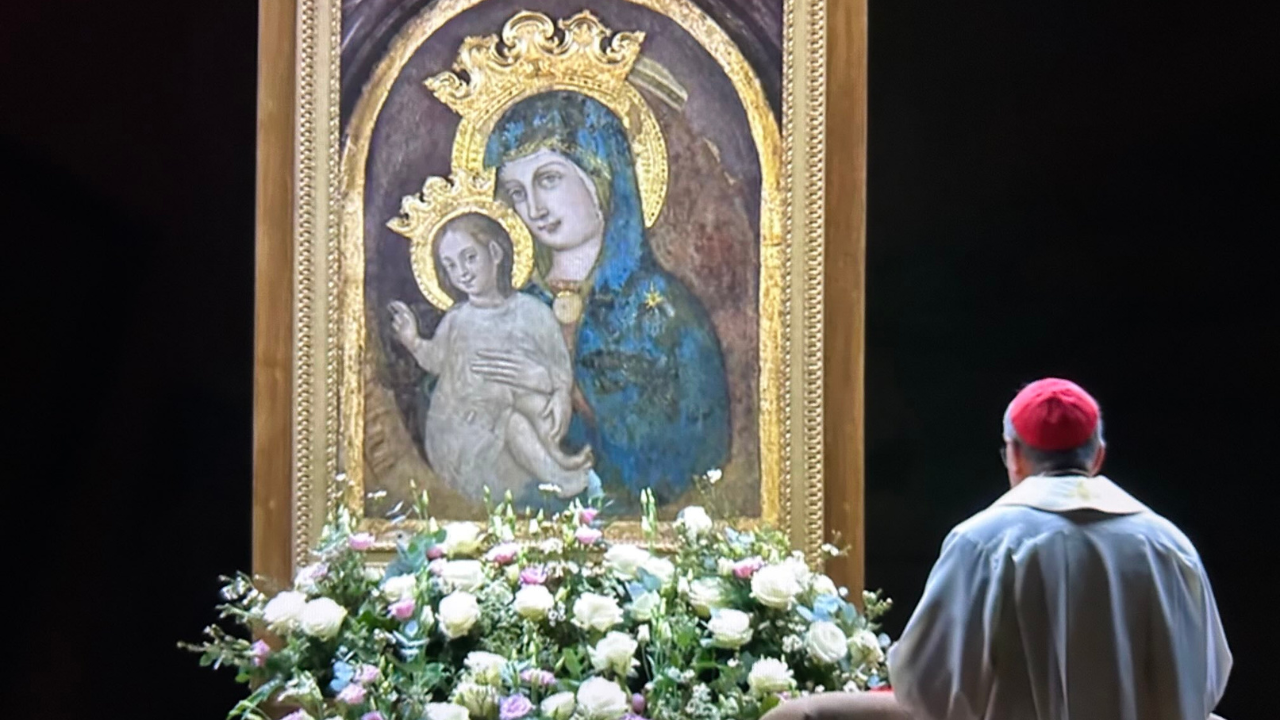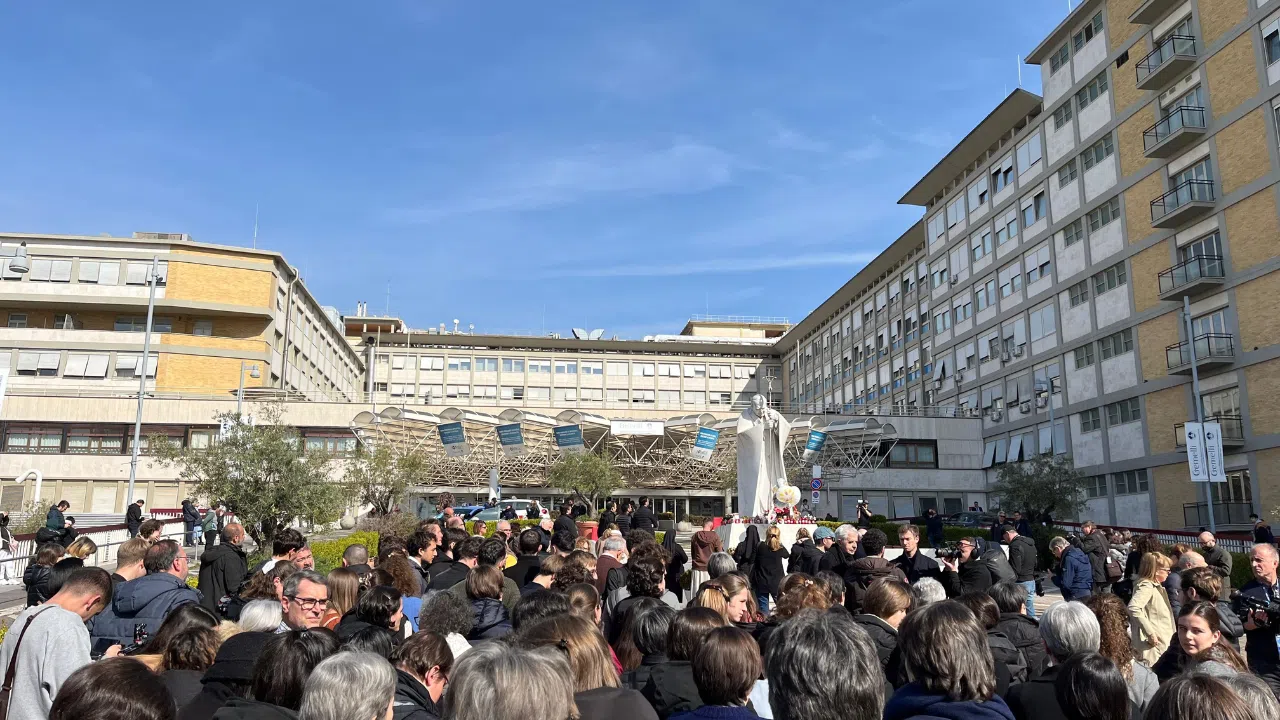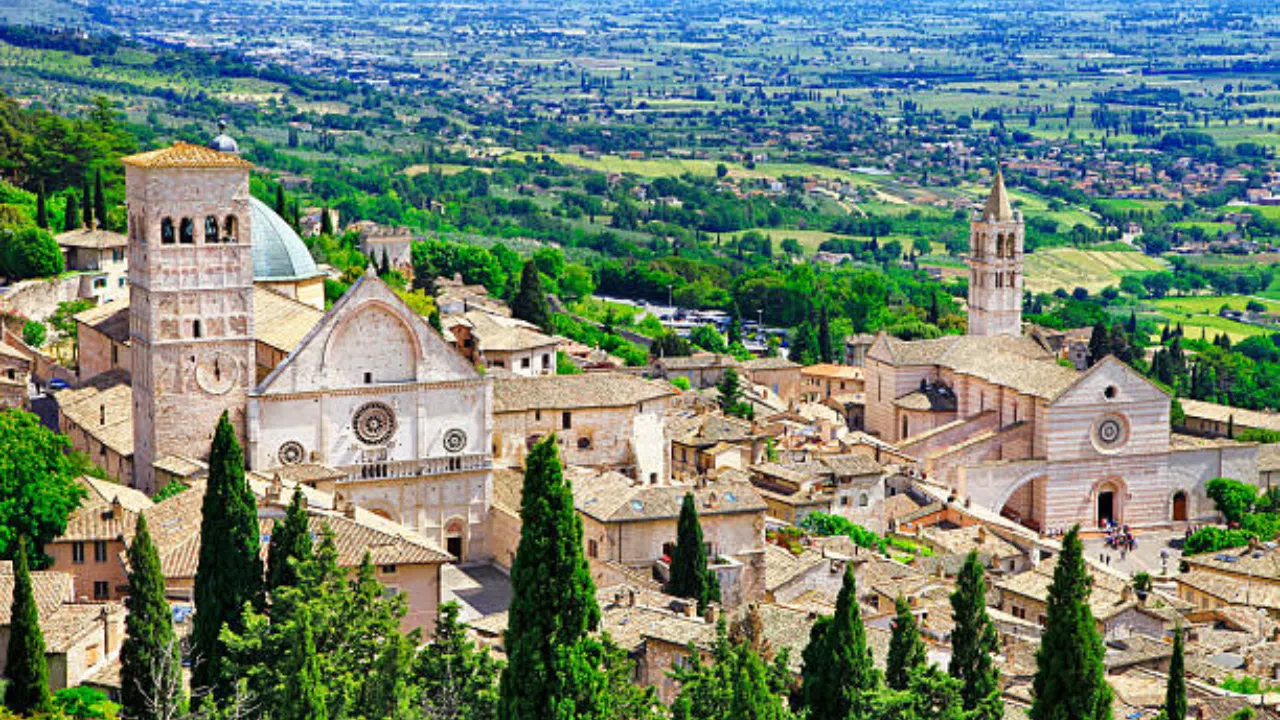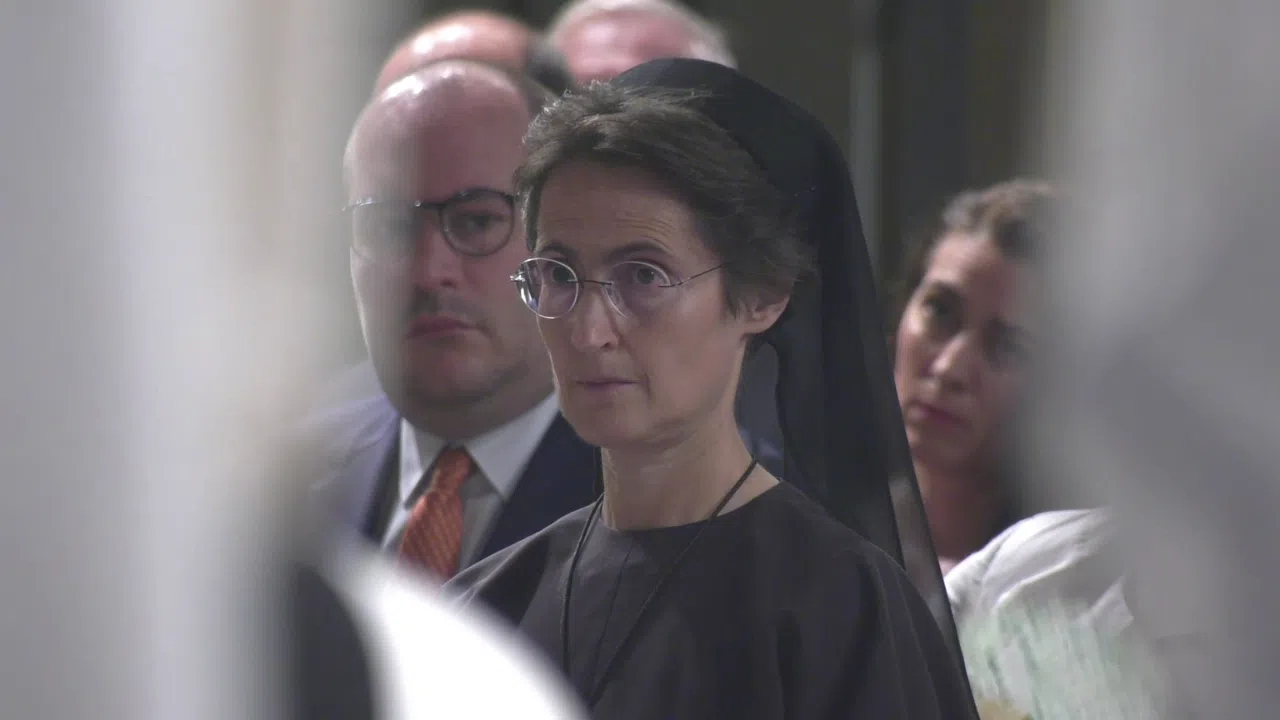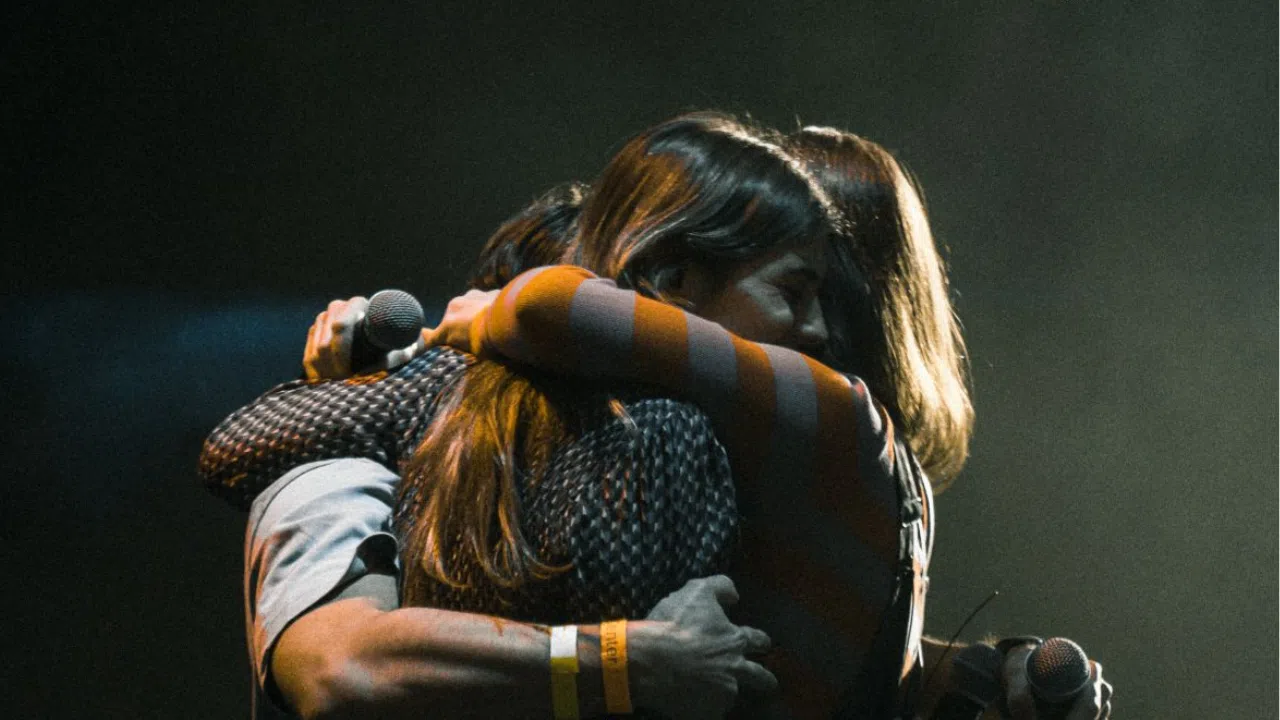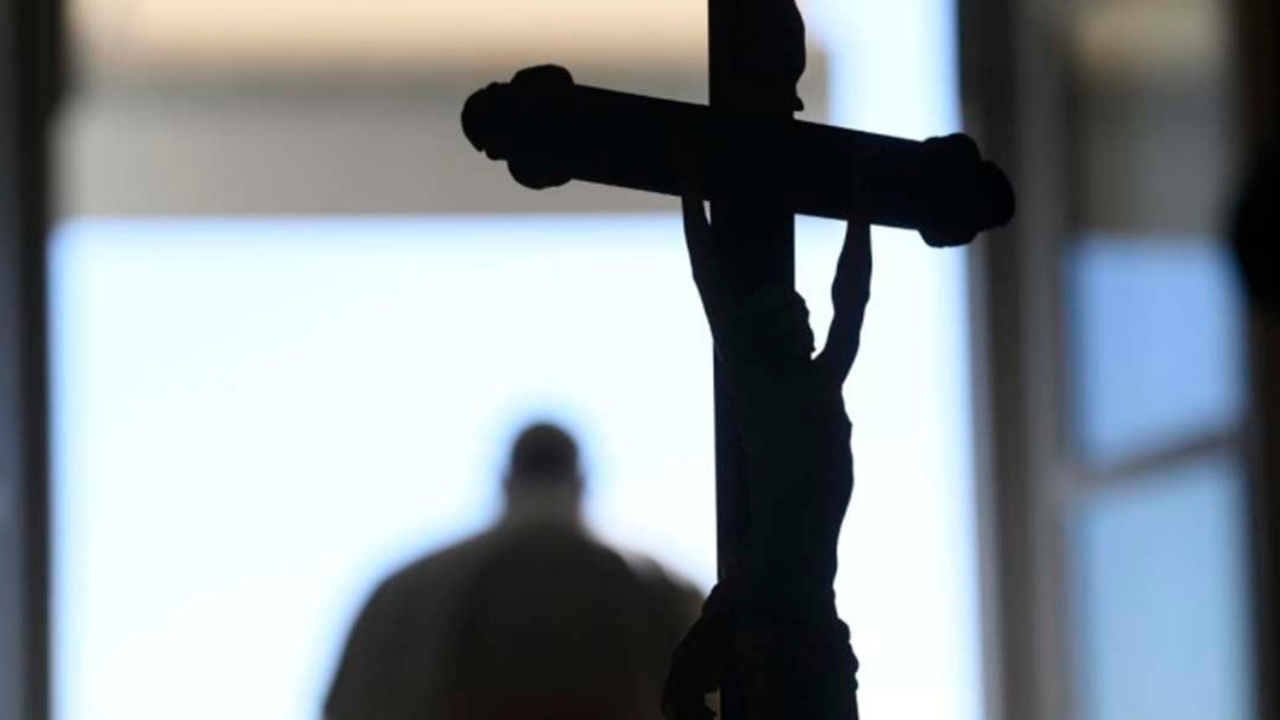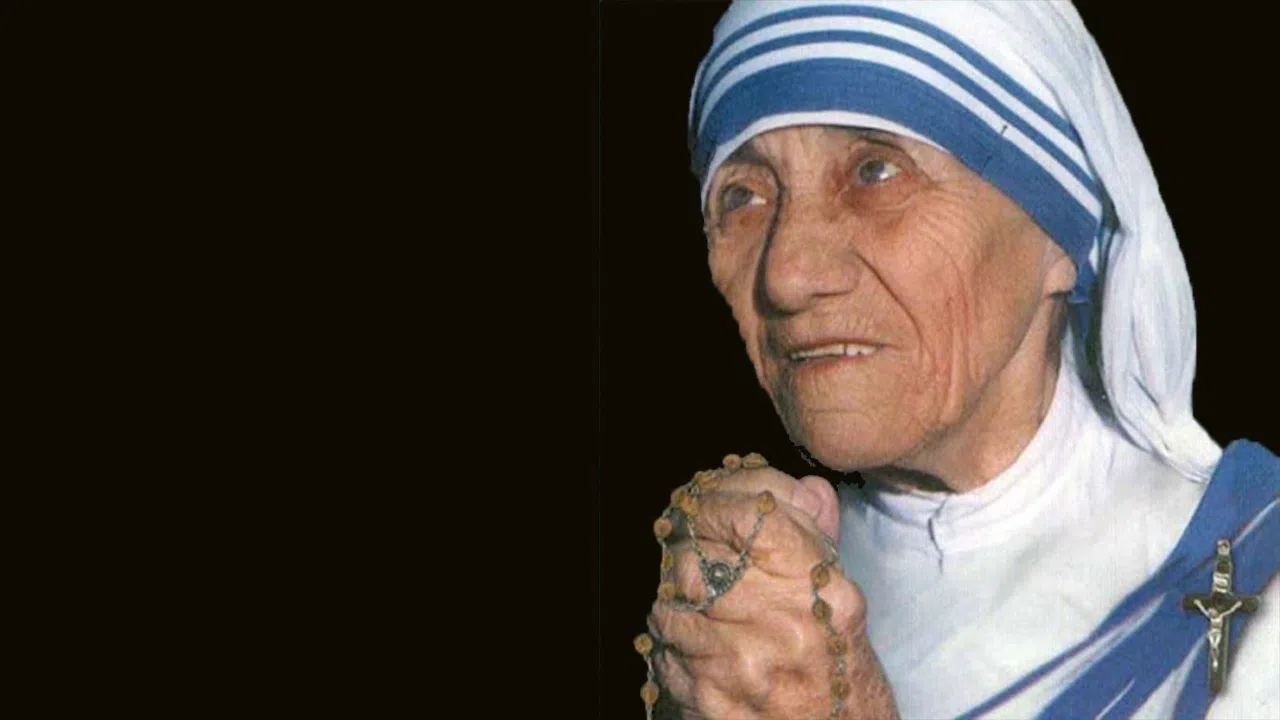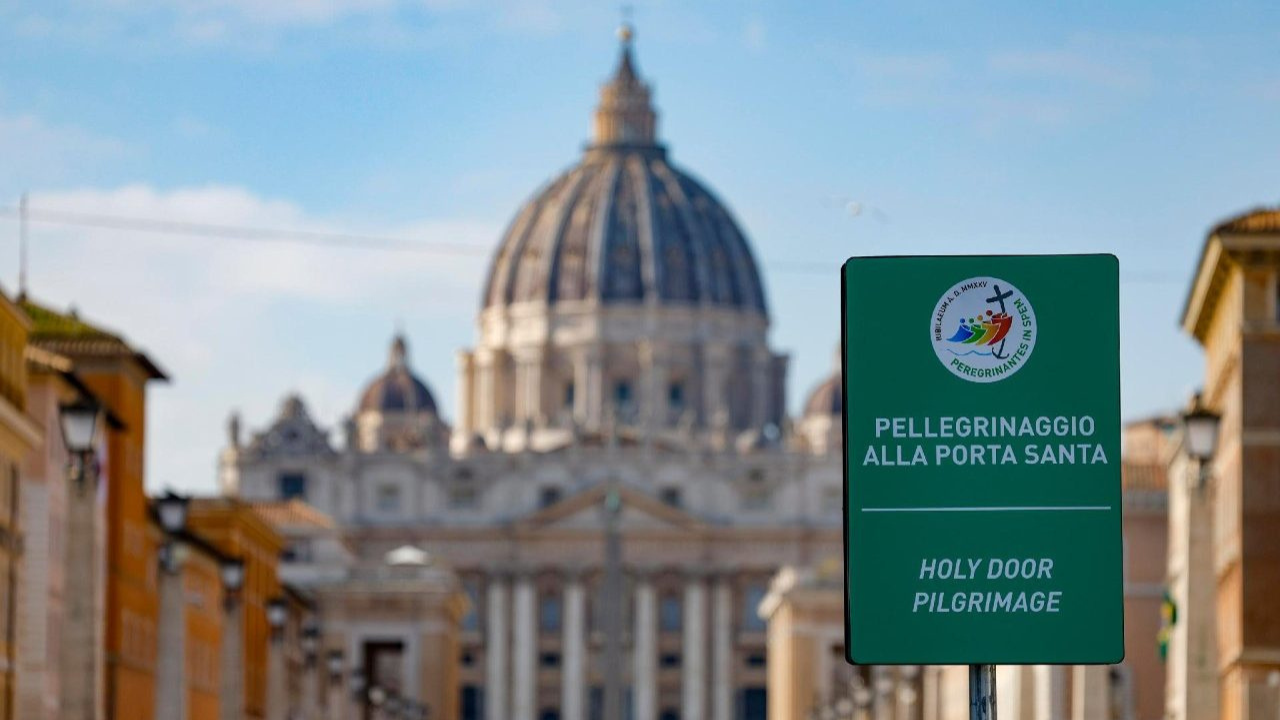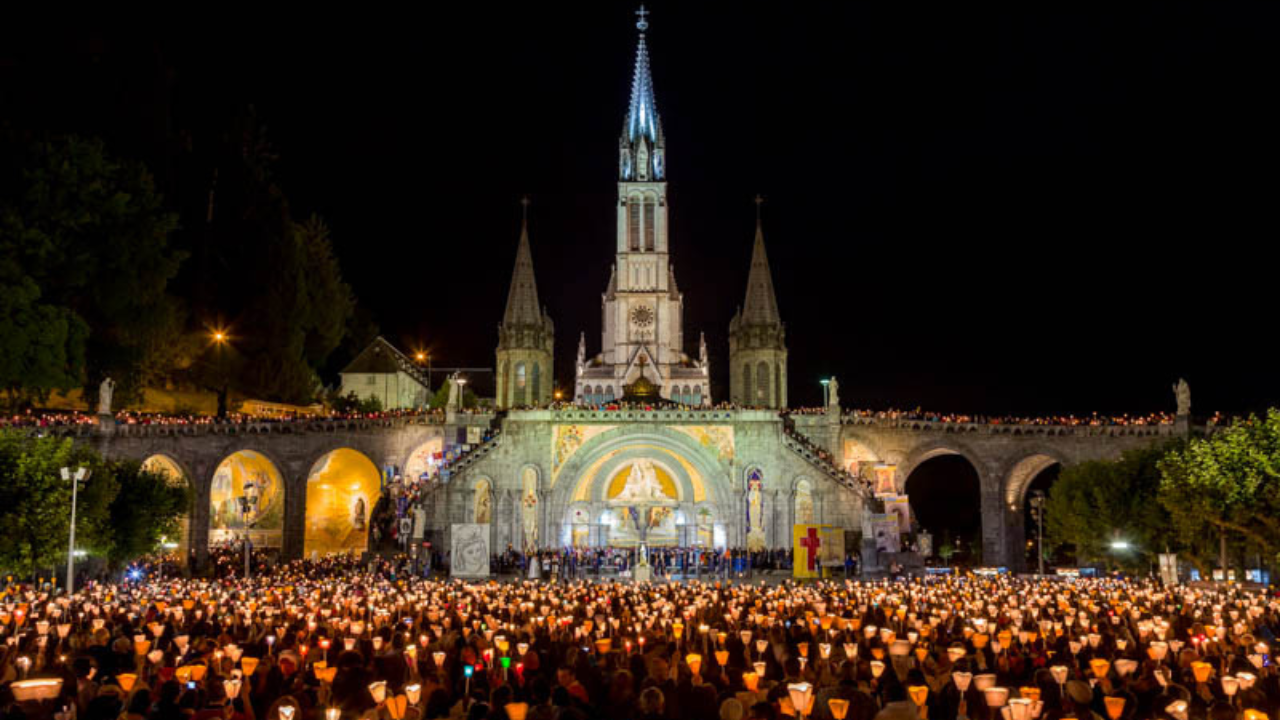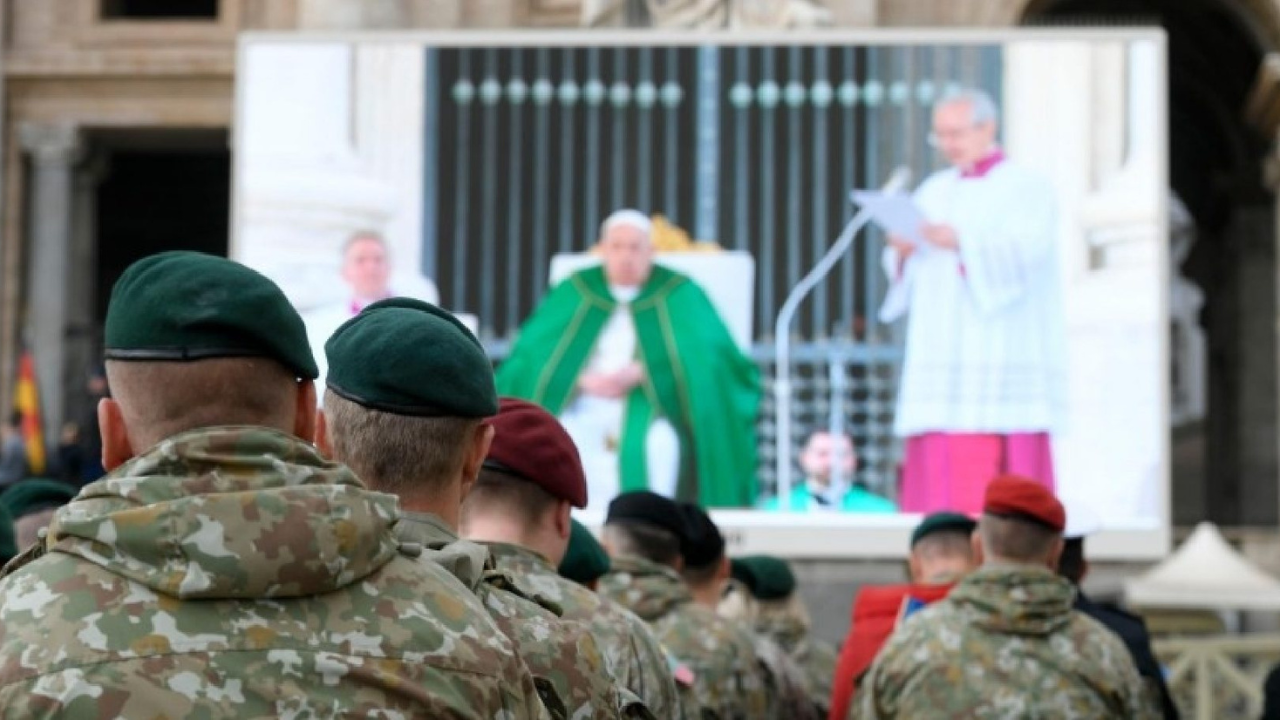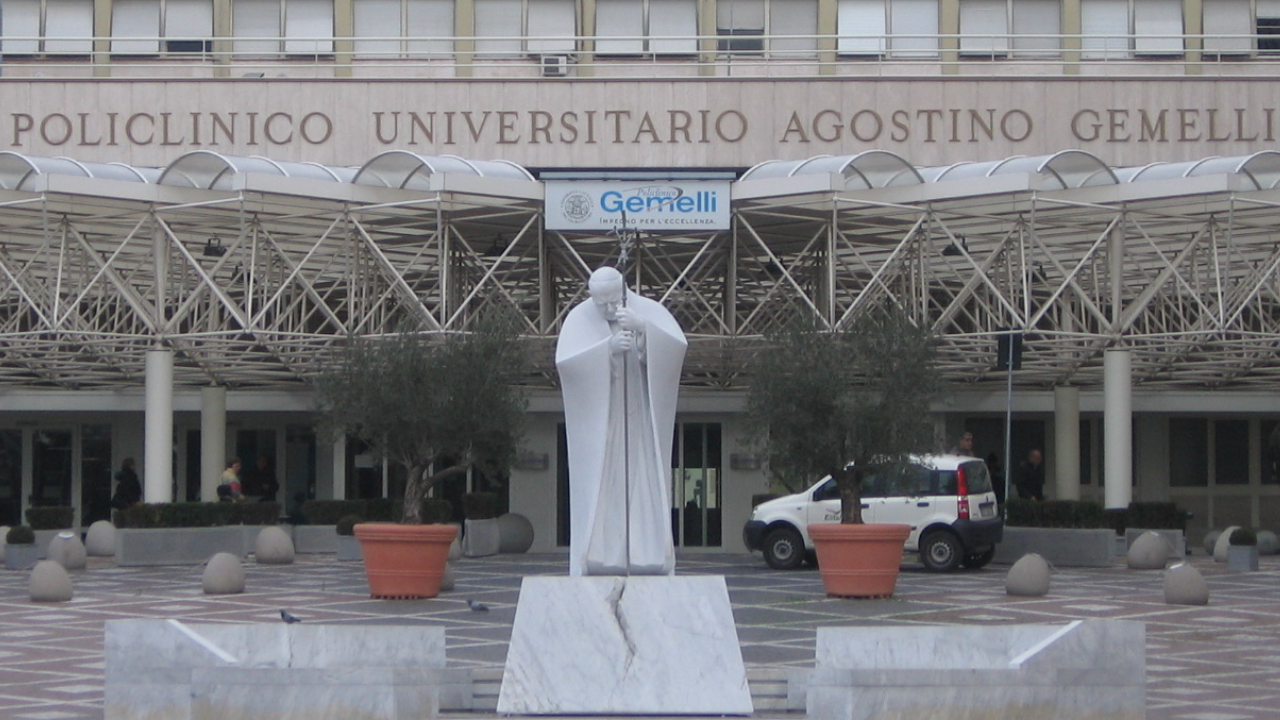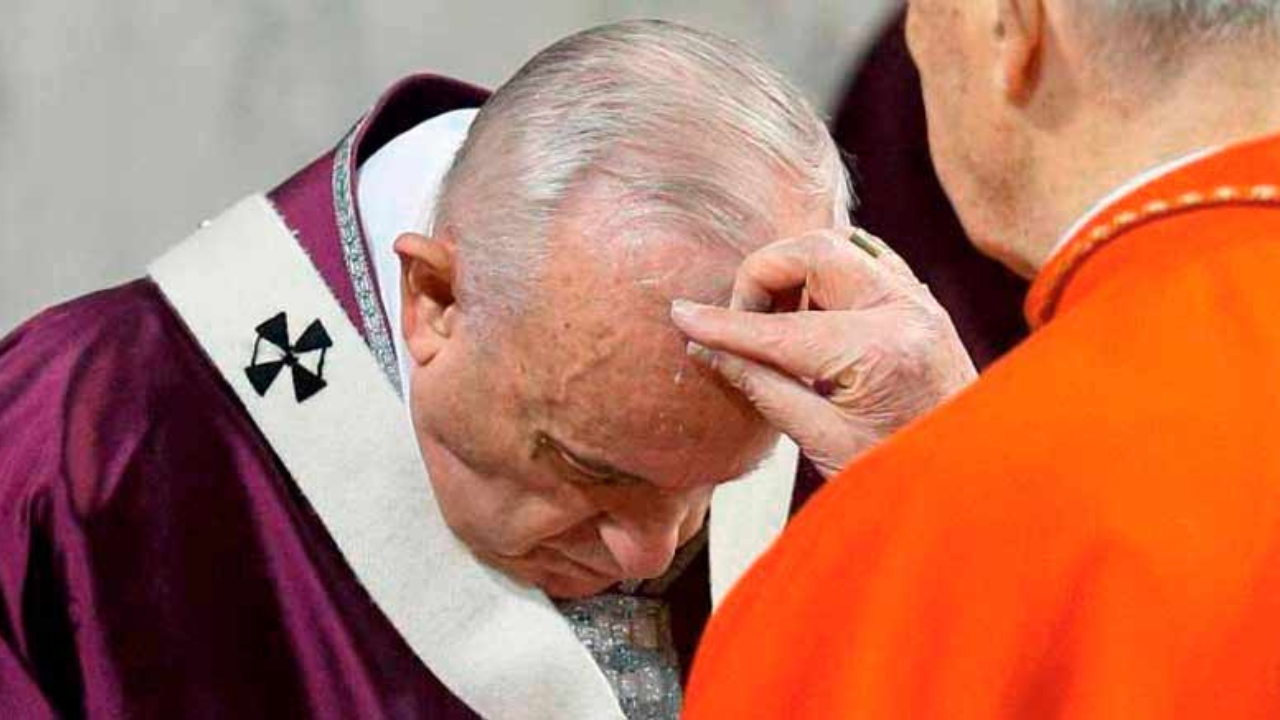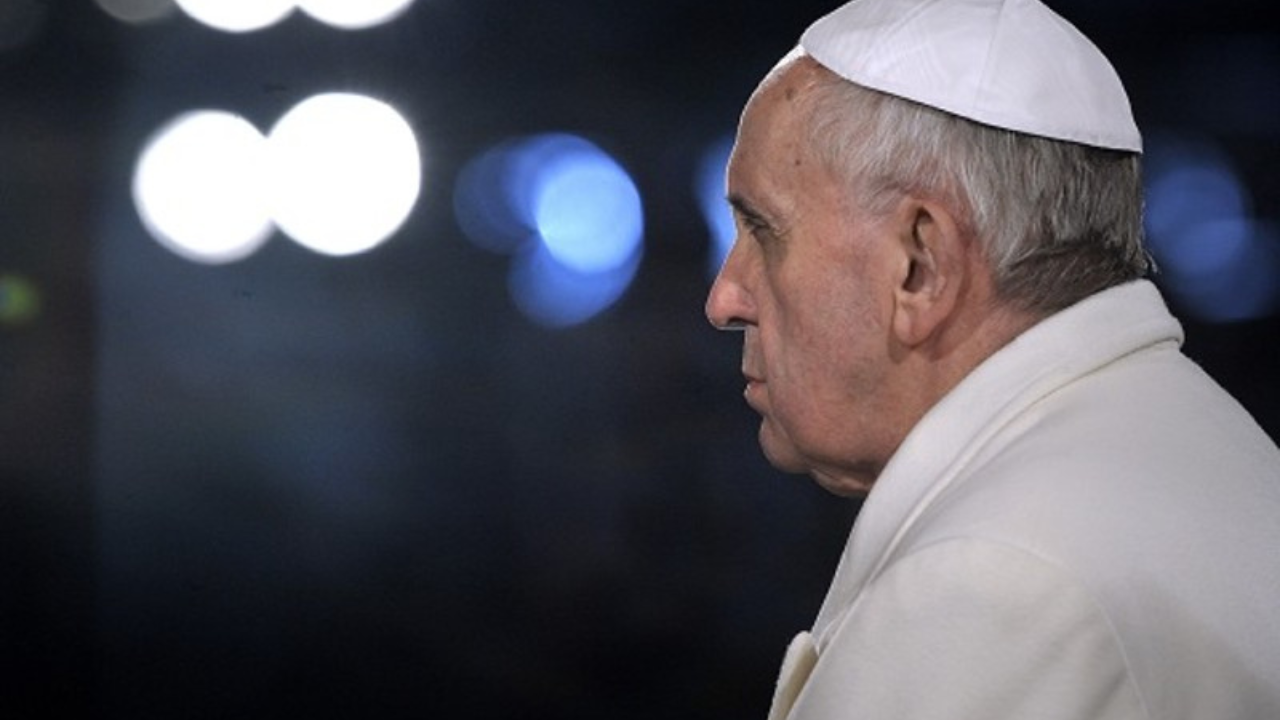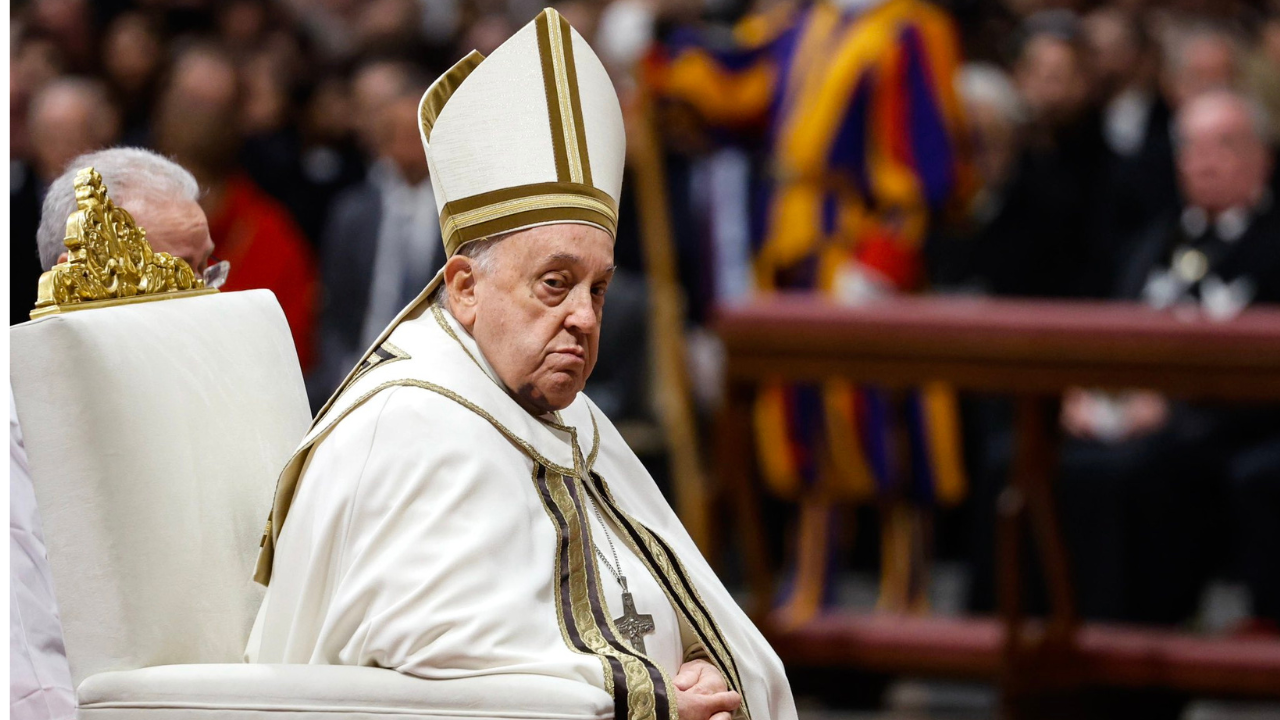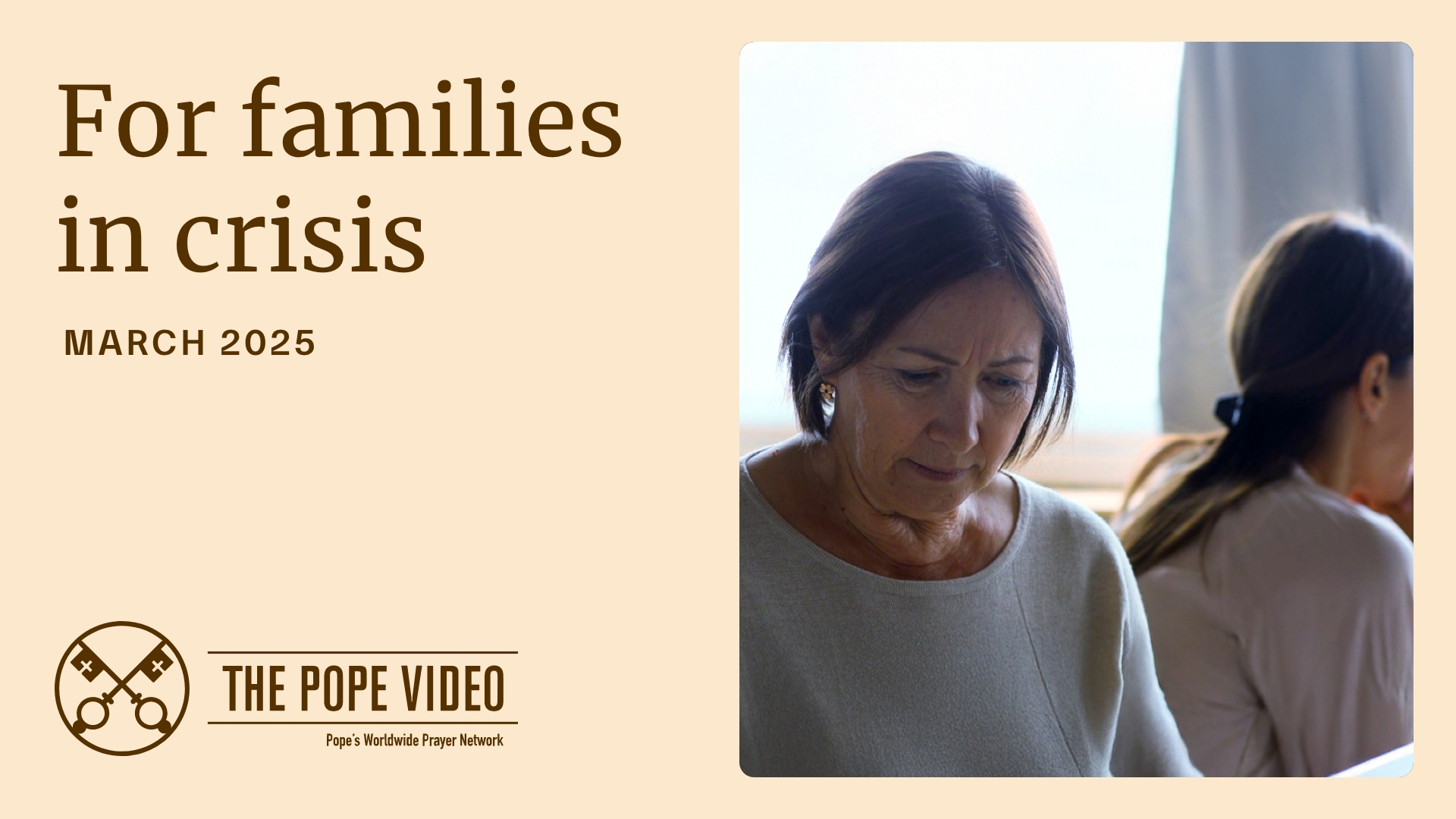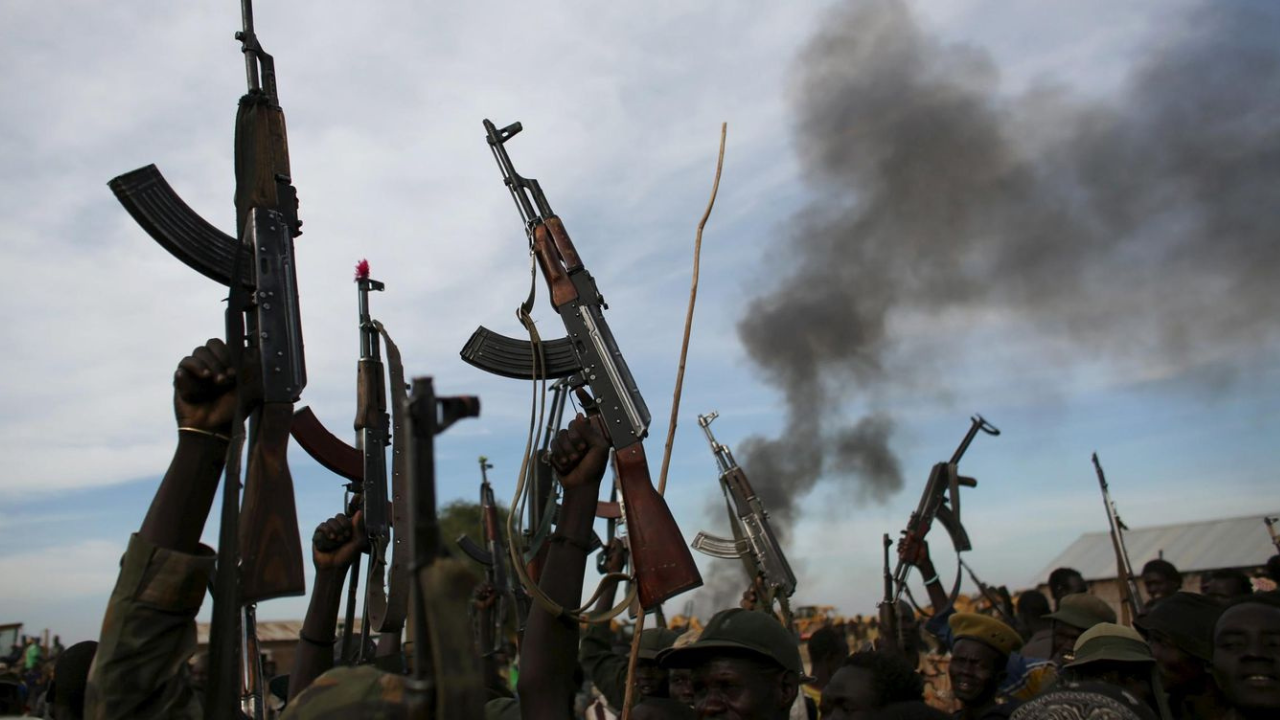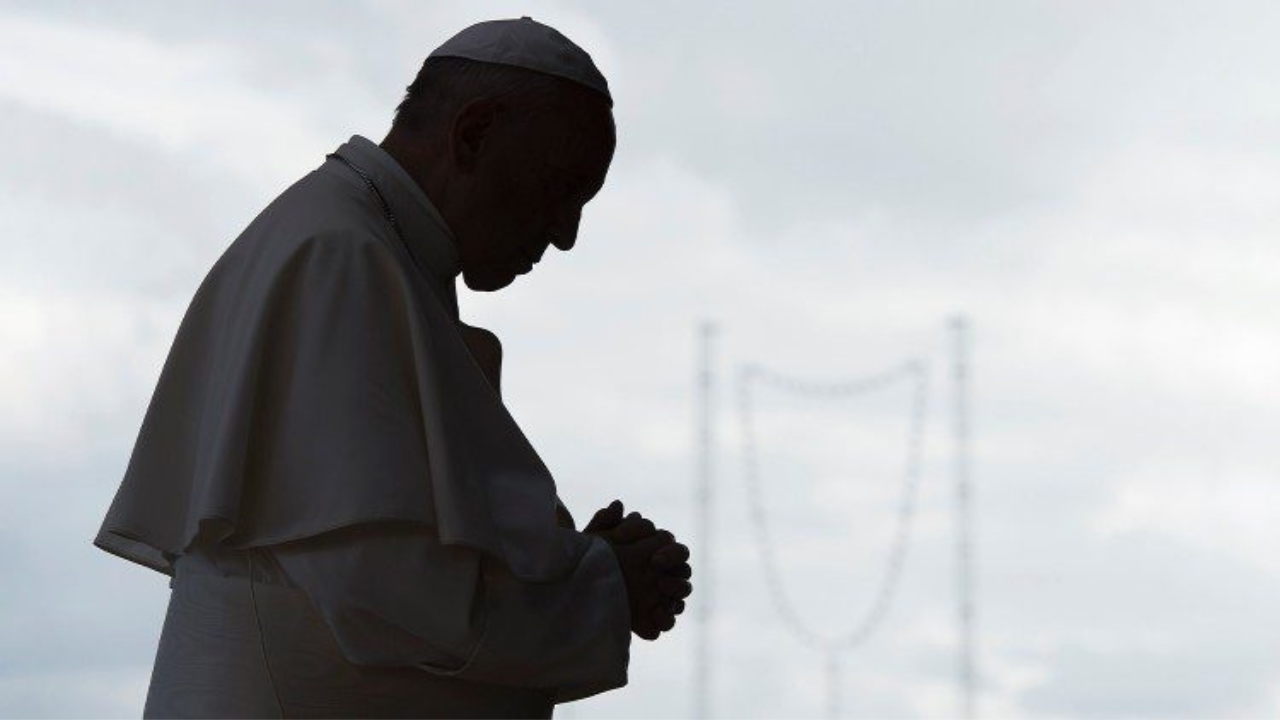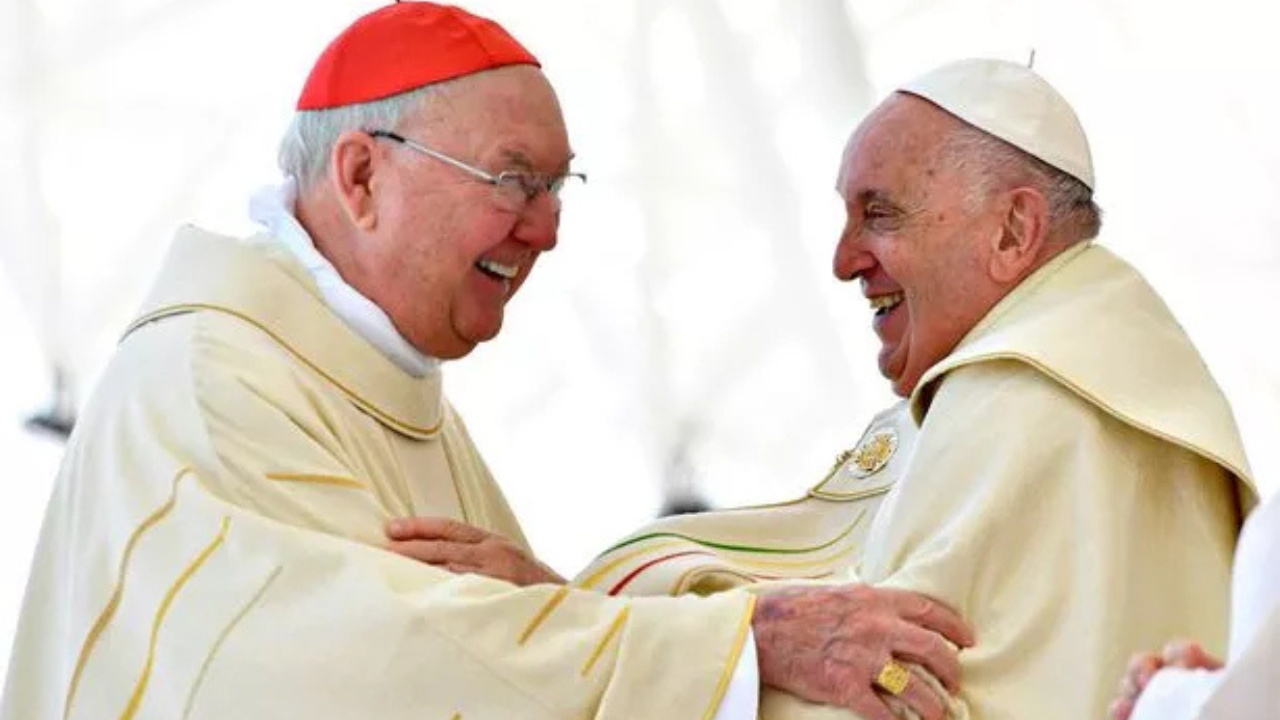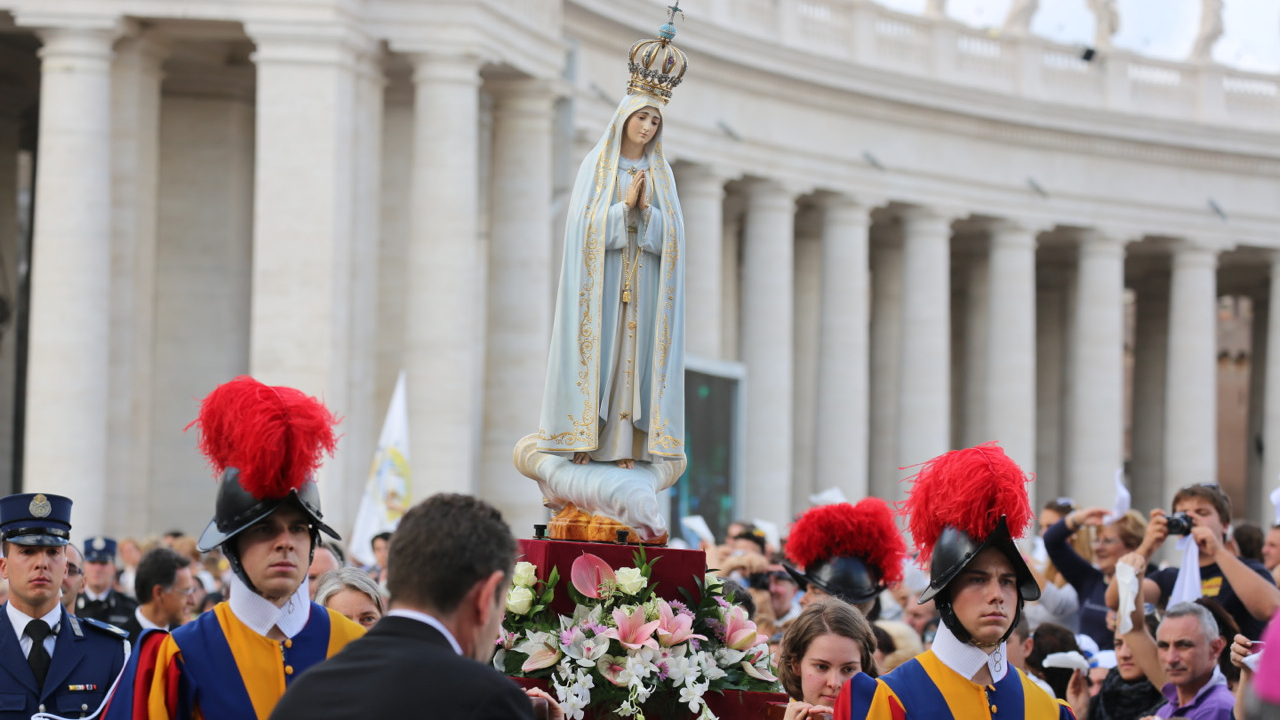Pope Francis was warmly received by the President of Cyprus, Nicos Anastasiades outside of the Presidential Palace in Nicosia.
He was then greeted by music from the band of Cyprus' armed forces.
The Pope and the president stopped before a statue of Makarios III, the former Orthodox Archbishop of Cyprus who was also the country's first president.
The two proceeded into the Presidential Palace and met privately for about 30 minutes.
-'Thank you Mr. President, for your words of welcome and warmth. A warm way of doing things is brotherly, and it reaches the heart.'
They then exchanged gifts. The president offered him various stitched goods for use in Mass and the first prints of stamps produced to mark the historic visit. The Pope gifted him the medal of his apostolic journey depicting the apostles Paul and Barnabas, two of the significant figures of spreading the Gospel through Cyprus and Greece.
He also surprised the President's translator with a gift.
-'For the lady.'
-'For me? Thank you I consider myself lucky.'
Before Cyprus' civil authorities and diplomatic corps, President Anastasiades confirmed that Pope Francis will take 50 refugees in Cyprus with him to Italy, which was rumored before the trip.
NICOS ANASTASIADES
President of Cyprus
'Your symbolic decision is firstly, a strong message for the need of a revision of the EU migration policy, so that on the one there will be a fairer division of managing the problem, and on the other hand a more humane life for those who immigrate to the member states.'
Pope Francis expressed his hope that Cyprus would be a model of integration for European countries since it receives a disproportionate number of migrants due to its location.
POPE FRANCIS
'The light of Cyprus is richly varied. Many peoples and nations have contributed different shades and tints to this population. I think too of the presence of many immigrants: percentage-wise, more than any other country of the European Union. To preserve the multicolored and multifaceted beauty of the whole is no easy thing.'
He also referenced the ongoing dispute in Cyprus, in which the northern third of the island, populated predominately by people of Turkish origin, declared itself a separate country and forced many Cypriots, including Maronite Catholic communities, out of the region.
POPE FRANCIS
'The greatest wound suffered by this land has been the terrible laceration it has endured in recent decades. I think of the deep suffering of all those people unable to return to their homes and their places of worship. I pray for your peace, for the peace of the entire island.'
The Pope then specified that the challenge of building peace in Europe falls on the shoulders of all people, not only political leaders.
POPE FRANCIS
'Peace is not often achieved by great figures, but by the daily determination of ordinary men and women. The European continent needs reconciliation and unity; it needs courage and enthusiasm, if it is to move forward.'
He then departed for Franciscan convent which sits along the UN-designated Green Line that separates the island's two regions, where he will end the first day of his apostolic journey to Cyprus and Greece.
JM


